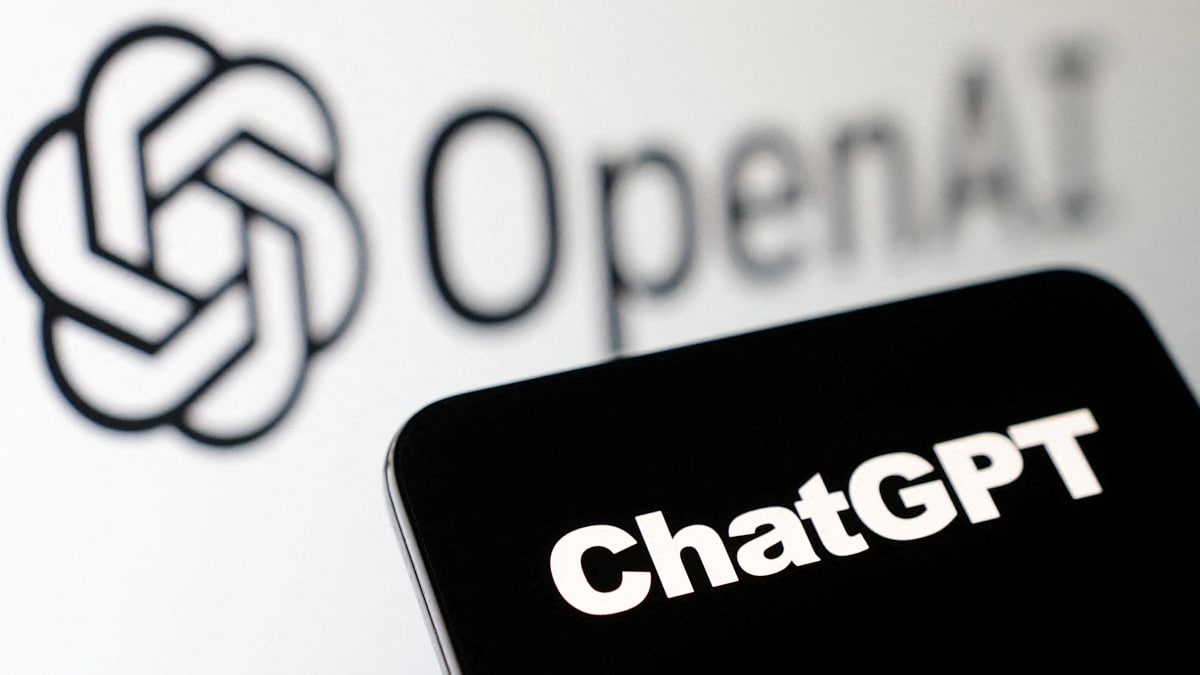OpenAI Facing FTC Investigation: Concerns Regarding ChatGPT's Data Practices

Table of Contents
OpenAI, the powerhouse behind the wildly popular chatbot ChatGPT, is facing intense scrutiny from the Federal Trade Commission (FTC). This investigation zeroes in on concerns surrounding ChatGPT's data practices and whether they comply with crucial consumer protection laws. The implications of this investigation are far-reaching, impacting not only OpenAI itself but also the future trajectory of generative AI and the broader AI industry. This article delves into the details of the FTC's investigation, examining the allegations, the data privacy concerns, and the potential consequences for OpenAI and the wider technological landscape.
The FTC's Allegations and Focus
The FTC's investigation into OpenAI centers around potential violations of Section 5 of the FTC Act, which prohibits unfair or deceptive acts or practices. The commission's concerns are multifaceted, focusing on several key areas impacting ChatGPT's data handling and user experience.
-
Allegations of unauthorized data collection: The FTC is reportedly investigating whether OpenAI collected and used user data without proper consent, potentially breaching established data privacy regulations. This includes concerns about the extent of data gathered during interactions with the chatbot.
-
Concerns about data breaches and security vulnerabilities: Given the sensitive nature of information potentially processed by ChatGPT, the FTC is likely scrutinizing OpenAI's security protocols to ensure robust protection against data breaches and unauthorized access. The sheer volume of data handled by such a large language model (LLM) raises significant security concerns.
-
Questions surrounding the transparency of ChatGPT's data handling practices: A major point of contention is the lack of clarity surrounding OpenAI's data handling practices. The FTC is likely examining whether OpenAI provided users with sufficient information about how their data is collected, used, and protected. This includes the clarity and accessibility of OpenAI's privacy policy.
-
Potential harm to consumers due to inaccurate or biased information generated by ChatGPT: The FTC's investigation also likely considers the potential for harm caused by inaccurate or biased information generated by ChatGPT. The potential for the spread of misinformation and the impact on consumers are key aspects of the ongoing investigation.
Data Privacy Concerns and ChatGPT's Data Handling
ChatGPT, as a generative AI model, processes vast amounts of data to function effectively. Understanding the types of data collected and their usage is crucial to evaluating the privacy implications.
-
User inputs and prompts: Every interaction with ChatGPT, including user inputs and prompts, contributes to the data collected. This data is invaluable for training and improving the model but raises concerns about the potential for the inadvertent disclosure of sensitive information.
-
Model training data: ChatGPT's training involves massive datasets, raising concerns about the origin and handling of this data. Ensuring the ethical and legal sourcing of this data is critical for compliance with data privacy regulations.
-
User interactions and feedback: User interactions and feedback, even seemingly innocuous, contribute to the data profile built around each user. This data could, potentially, be used to create detailed user profiles.
-
Potential for the collection of personally identifiable information (PII): While OpenAI claims to anonymize data, the potential for the collection of PII remains a significant concern. This is particularly relevant given the conversational nature of the ChatGPT interaction.
-
Lack of clarity regarding data retention policies: OpenAI’s data retention policies might lack clarity and transparency, contributing to the FTC's investigation. Understanding how long user data is stored and the security measures implemented during storage is essential for user trust.
Potential Impacts of the Investigation on OpenAI and the AI Industry
The FTC investigation carries significant implications for OpenAI and the wider AI industry.
-
Financial penalties for OpenAI: Depending on the findings, OpenAI could face substantial financial penalties for violating consumer protection laws. These penalties could significantly impact the company's financial stability.
-
Mandatory changes to ChatGPT's data handling procedures: The FTC might mandate significant changes to ChatGPT's data handling procedures, including enhanced data security measures, improved transparency, and stricter consent protocols. This could necessitate substantial technical and operational changes.
-
Increased scrutiny of other AI companies and their data practices: The OpenAI investigation sets a precedent, likely leading to increased scrutiny of other AI companies and their data handling practices. This could trigger a wider wave of regulatory changes across the AI sector.
-
Potential for new regulations governing AI data usage: The investigation could catalyze the development of new regulations specifically targeting the unique data handling challenges posed by generative AI models. This could shape the regulatory landscape for years to come.
-
Impact on consumer trust in AI technologies: The outcome of the investigation will inevitably impact consumer trust in AI technologies. Negative publicity could erode public confidence in AI, hindering innovation and adoption.
The Role of Generative AI and Ethical Considerations
Generative AI models, such as ChatGPT, present unique ethical challenges that extend beyond traditional data privacy concerns.
-
Bias and fairness in AI-generated content: Generative AI models can inherit and amplify biases present in their training data, leading to unfair or discriminatory outcomes. Addressing these biases is paramount for ethical AI development.
-
Misinformation and the spread of false narratives: The ability of generative AI to produce convincing but false narratives raises concerns about the spread of misinformation and the potential for manipulation.
-
The potential for malicious use of AI technology: Generative AI models could be misused for malicious purposes, such as generating deepfakes or creating sophisticated phishing scams.
-
The need for transparency and accountability in AI development: Transparency and accountability are crucial for building trust and ensuring responsible AI development. This includes clear guidelines on data usage, model training, and potential biases.
Conclusion
The FTC investigation into OpenAI's ChatGPT data practices underscores critical concerns about data privacy, security, and the ethical implications of generative AI. The outcome will significantly influence OpenAI, the wider AI industry, and future AI regulation. This investigation highlights the urgent need for robust regulations and ethical guidelines to govern the development and deployment of powerful AI technologies like ChatGPT. It emphasizes the importance of responsible AI practices, safeguarding user data, and mitigating potential risks.
Call to Action: Stay informed about the evolving landscape of AI data privacy and the ongoing OpenAI FTC investigation. Engage in discussions surrounding responsible AI development, advocate for stronger data protection measures, and contribute to shaping a future where AI technologies are developed and used ethically and responsibly. Learn more about responsible AI practices and help ensure the ethical development and deployment of ChatGPT and similar AI technologies.

Featured Posts
-
 Memorial Day Deals 2024 Our Top Picks
May 27, 2025
Memorial Day Deals 2024 Our Top Picks
May 27, 2025 -
 Successful Police Operation In Zamfara Bandit Attack Foiled Kingpin Killed
May 27, 2025
Successful Police Operation In Zamfara Bandit Attack Foiled Kingpin Killed
May 27, 2025 -
 Sexting Scandal Cheryl Hines Demands Action From Robert F Kennedy Jr
May 27, 2025
Sexting Scandal Cheryl Hines Demands Action From Robert F Kennedy Jr
May 27, 2025 -
 Nora Fatehi And Jason Derulos Snake Tops Uk British Asian Music Charts
May 27, 2025
Nora Fatehi And Jason Derulos Snake Tops Uk British Asian Music Charts
May 27, 2025 -
 Tayemna Zustrich Predstavniki Trampa I Putina V Peterburzi Za Danimi Zmi
May 27, 2025
Tayemna Zustrich Predstavniki Trampa I Putina V Peterburzi Za Danimi Zmi
May 27, 2025
